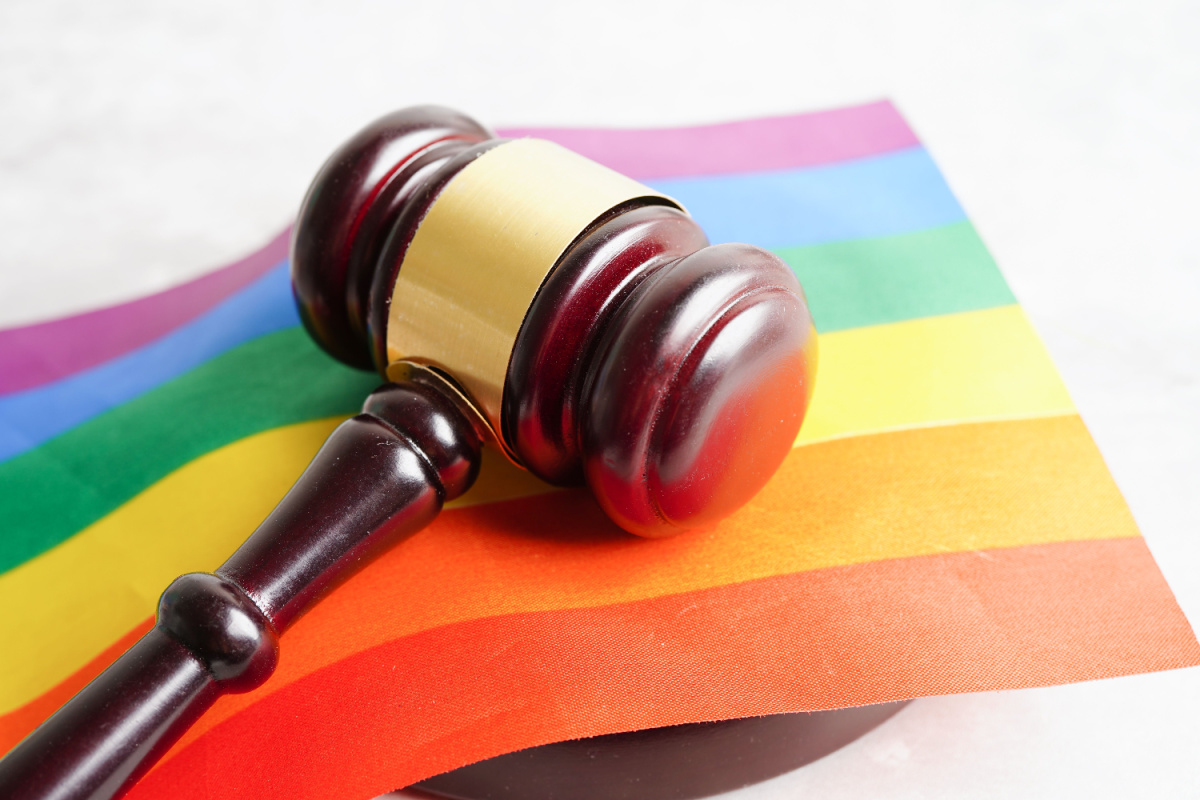2023 has been a significant year for LGBTQ+ celebrity divorces, including soccer stars Ashlyn Harris and Ali Krieger, pop star Ricky Martin and painter Jwan Josef, and Broadway actors Billy Porter and Adam Smith. In recent years, the legal landscape has seen significant changes in terms of marriage rights for LGBTQ+ couples. This transformation has ushered in a new era of inclusivity and legal recognition. Under California law, same-sex couples enjoy the same marriage rights and privileges as their heterosexual counterparts.
Marriage equality signifies all couples, regardless of their gender identity or sexual orientation, can marry and legally access the benefits associated with marriage. The process for obtaining a marriage license is the same for LGBTQ+ couples as it is for heterosexual couples.
Divorcing within an LGBTQ+ marriage is a process requiring careful consideration and understanding. Couples facing this situation must be aware of the legal aspects involved. In California, LGBTQ+ couples have the same rights and responsibilities as heterosexual couples when it comes to divorce.
Divorce proceedings for LGBTQ+ marriages follow the same general procedures as any other divorce case. These include issues such as child custody, spousal support, and the division of assets. Both parties need to communicate openly and honestly during this challenging time.
While each divorce is unique, the basic principles of fairness and equitable resolution apply equally to LGBTQ+ couples. The goal is to reach a mutually agreeable settlement that respects the rights and interests of both spouses.
When it comes to child custody in LGBTQ+ families, understanding parental rights is paramount. In California, the law recognizes that LGBTQ+ parents have the same legal standing as any other parents. It’s essential to be aware of how the legal system views parental rights in these families.
In the event of a separation or divorce, custody arrangements should prioritize the best interests of the child. Factors like the child’s well-being and the ability of each parent to provide a stable environment are considered. LGBTQ+ parents have the same rights and responsibilities as heterosexual parents in this regard.
Addressing the matter of spousal support in same-sex divorce is a key consideration for couples parting ways. In California, the legal system treats spousal support similarly for LGBTQ+ couples as it does for heterosexual couples.
Spousal support, often referred to as alimony, may be awarded based on factors like the length of the marriage and the financial circumstances of each spouse. It’s crucial for both parties to understand their rights and obligations in this context.
Just like any other divorcing couple, LGBTQ+ spouses should be aware of the potential financial implications of spousal support agreements. The goal is to ensure fairness and equity during the divorce process.
When it comes to dividing property in divorce, safeguarding one’s assets is a fundamental concern for both LGBTQ+ and heterosexual couples. In California, property division follows established legal guidelines.
Understanding the principles of property division is vital. This process involves evaluating and distributing marital assets and debts equitably. Individuals must comprehend their rights and responsibilities during this phase of divorce.
Property division in LGBTQ+ divorce cases operate in the same way as it does for heterosexual couples. Both parties should be aware of how the law views the distribution of assets, regardless of their gender identity or sexual orientation.
Recognizing the importance of protecting assets during property division empowers individuals to make informed decisions that align with their financial interests. It underscores that the legal system treats LGBTQ+ couples equally in this regard, ensuring fairness in the division of property.
In the realm of LGBTQ+ relationships, prenuptial agreements hold significance as legal documents that provide financial protection and clarity. These agreements, similar to those for heterosexual couples, establish guidelines for asset and debt division in the event of divorce.
Understanding prenuptial agreements is essential for LGBTQ+ couples planning to marry. These documents address various financial aspects, such as property, assets, and spousal support, ensuring that both parties are aware of their rights and obligations.
Prenuptial agreements reflect the legal recognition and equal treatment of LGBTQ+ couples under California law. They offer a framework to protect individual financial interests while fostering open communication between partners.
Addressing cases of domestic violence within LGBTQ+ relationships is a critical concern that requires a thoughtful approach. In California, the legal system treats these cases with the same gravity as those in heterosexual relationships.
Understanding the dynamics of domestic violence is essential for both victims and perpetrators within LGBTQ+ partnerships. It’s crucial to be aware of the potential consequences and legal ramifications of such actions.
When handling same-sex domestic violence cases, individuals should focus on their legal rights and responsibilities. This approach ensures that justice is served and that the legal system provides equal protection for all, irrespective of gender identity or sexual orientation.
LGBTQ+ adoption and divorce, like any other family legal matters, involve complex considerations. In California, the law recognizes the rights and responsibilities of LGBTQ+ couples in both adoption and divorce cases.
Understanding the intricacies of LGBTQ+ adoption is vital when couples decide to expand their families. It’s crucial to be aware of the legal processes and requirements that apply to LGBTQ+ individuals who wish to adopt children.
In the unfortunate event of a divorce within an LGBTQ+ family, child custody and support agreements come into focus. Just like heterosexual couples, LGBTQ+ couples face similar challenges and decisions when it comes to the well-being of their children.

In the realm of LGBTQ+ divorce, questions often arise, and seeking expert insights can provide clarity. Here are some common questions that LGBTQ+ couples may have during the divorce process:
Seeking expert advice on these matters can help LGBTQ+ individuals navigate the divorce process effectively while ensuring their legal rights are upheld.
If you are going through the divorce process, contact us or call 619-299-9780 for a free phone consultation.
FILL OUT THE FORM TO
